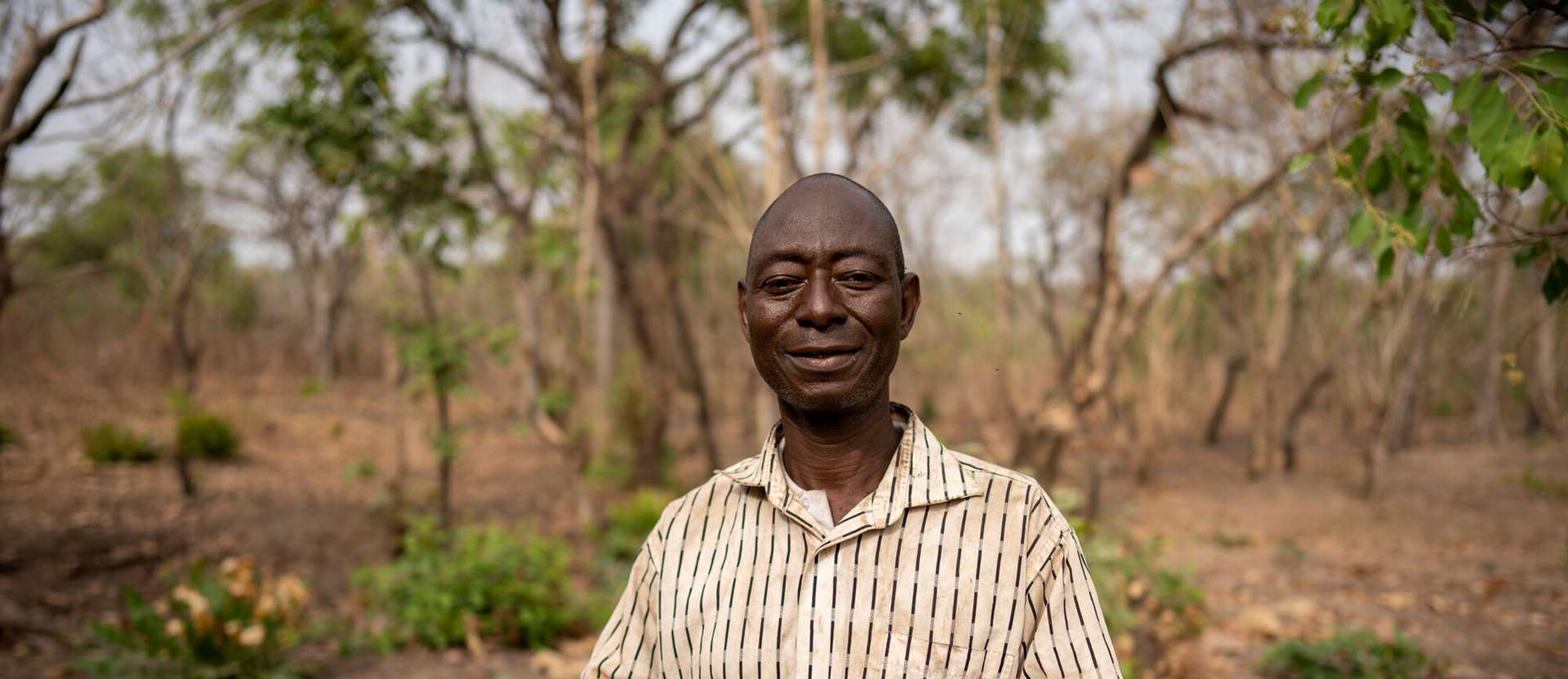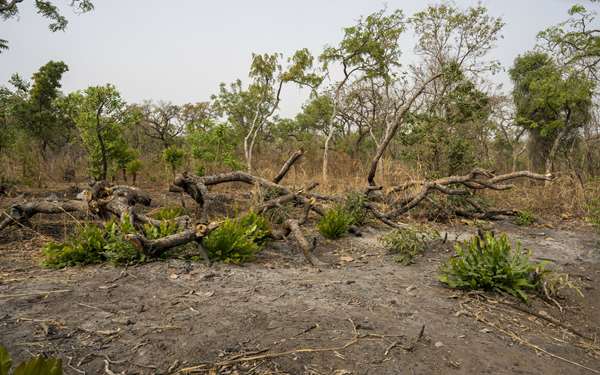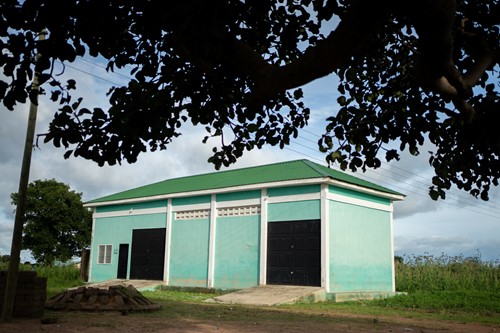
Iddrisu's story
Growing trees and knowledge with farmers in GhanaResilience from seed to sale – growing cashews for the future with Iddrisu Sumani:
What do we mean when we say ‘resilience’? For Alvaro Lario, President of the International Fund of Agricultural Development (IFAD), resilience means that "when you have a shock to your income – like currently, with inflation – or a shock from extreme climate, you’re not going to fall from the brink of poverty into poverty or food insecurity.”
The smallholder farmers we work with in Africa’s drylands are exposed to a growing number of these shocks in their day-to-day lives. From the impacts of a changing climate (like drought and flooding), to the rising costs of fertilizer and regional conflicts, the success of their line of work is highly dependent on external factors.

Meet Iddrisu
Aged 52, Iddrisu is one such farmer. He has specialized in cashew farming since 1996, and is now the president of West Gonja’s Cashew Farmer’s Union.
We’re working with people like Iddrisu to try and reduce the risk of these shocks, and the impact they can have when they do arise. By increasing Iddrisu’s access to trees, tools, and training in ‘climate-smart’ farming methods, we are supporting him to grow a resilient farming business that he can rely on for an income, long into the future.
Why is this project needed?
Whilst Iddrisu has been farming cashew for many years, access to agricultural training has not been easy to come by in his area. He told us that, in the past “we were using old methods and often not good agronomic practices. Our method was just planting anyhow like a local farmer… my lifestyle was very poor because of the lack of knowledge in certain agricultural practices.”
Unfortunately, this lack of training can often lead to destructive farming practices, like deforestation - “indiscriminate cutting down of trees was in abundance, chainsaw operators were in the place, cattle destroying farms and bush burning were serious threats to everybody in the community” he says.


Changing lives with cashews
The ‘climate-smart’ agriculture training that we practice across our projects takes a holistic look at the needs of the farming community. The training we provided for Iddrisu focused on improving the health of his cashew crop, and diversifying his farm to ensure he has a range of different income sources.
The climate-smart training is not just about improving yields, but about generating community buy-in for a more resilient local environment too. This approach can come in some unlikely forms. For example, to address the deforestation issues in the region, we took to the radio waves!
“Jingles were produced on FM [radio] to create awareness about the issues that were causing climate change” – Iddrisu Sumani
Resilience, from seed to sale:
Resilience takes many forms when you’re a farmer. Changing the way you manage the land can make a huge impact on yields, but to build a truly resilient business from cashews, every step of a product’s lifespan must be considered.
“Raw cashew nut prices always go up and down - a farmer needs to have good storage to keep the cashew for 2 to 3 months” Iddrisu told us. In this volatile market, it’s important to be able to keep your product safe and dry, so it can be sold at the best time. Tree Aid has provided warehouses as part of the project to meet this need, training local farmers in methods for packing and storage to ensure the best possible lifespan and quality of their products:
“Now we can store cashew for much longer in the warehouse - we’ve been taught… to put them into jute sacks, and to package them in palettes. All these extend the longevity of the product.
The product can be stored for a long time when you have a well-ventilated warehouse.”

“Tree Aid has helped us to sign contract with buyers so that has given us a win-win situation. We are able to negotiate for a better price” - Iddrisu Sumani
We also provide business training for farmers in West Gonja, covering areas like contracting and marketing. We’re encouraging farmers like Iddrisu to work collaboratively to sell their product in bulk too, to have greater bargaining power.
“The future of our communities is bright… farmers are now taking care of their plantations in order to get more income for themselves, income for the district, and income for the export market."
Excitingly, the effects of the co-operative business training have snowballed, resulting in the cashew union, which Iddrisu now leads.
“[We’re] advocating for more buyers to come in to negotiate with the union to get a reliable and sustainable market for the farmers. The union is now signing contracts with buyers, which will lead to getting a better price and income to the farmer.”
Impacts like this wouldn’t be possible without your support. Access to reliable, sustainable incomes are changing lives for farmers like Iddrisu, who live on the frontlines of the climate crisis. Together, we can ensure that Africa’s drylands are equipped with the trees, tools and training they need to transform their land and businesses in preparation for an uncertain future.